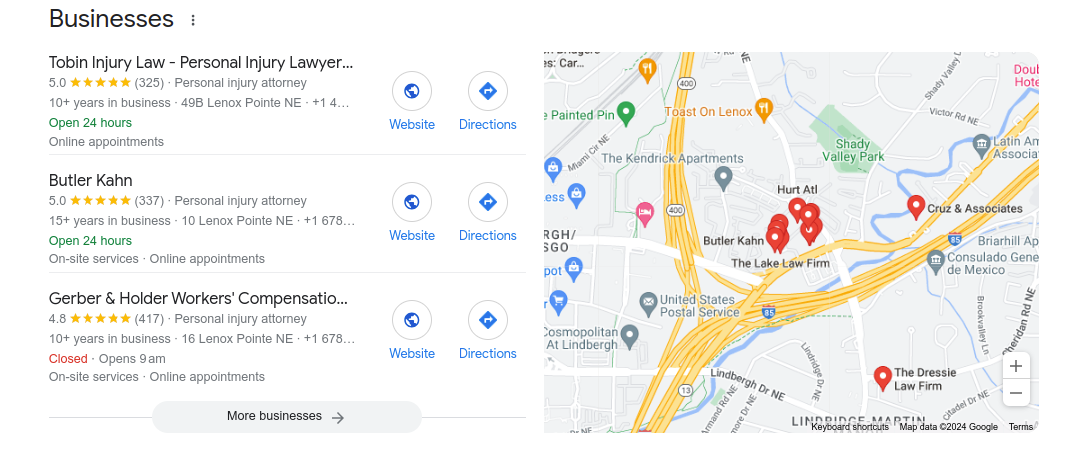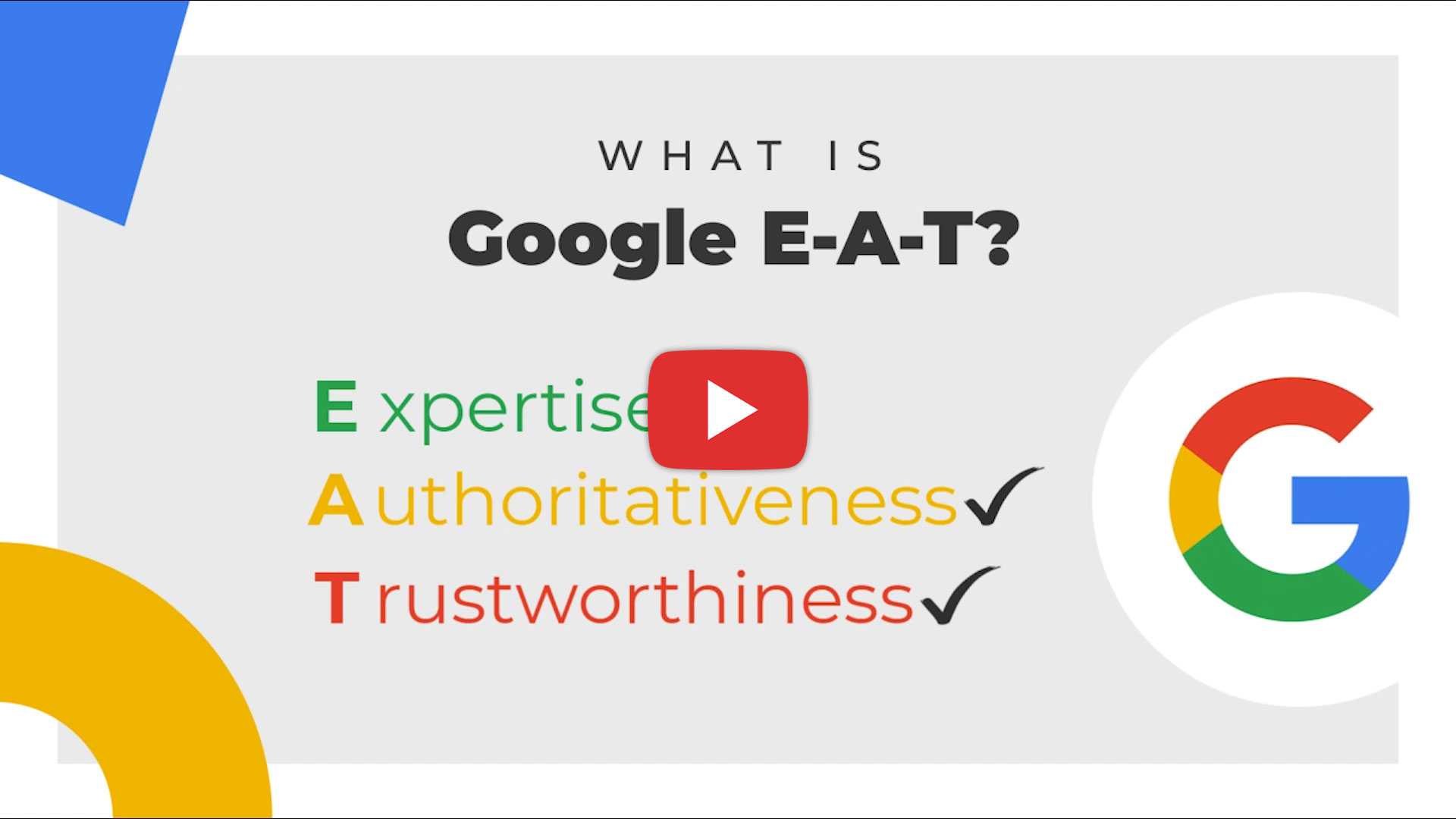Law Firm SEO and Best Practices
Stay up to date with the latest Activities and news.
In today’s digital landscape, a law firm must have a robust online presence to attract potential clients and establish authority in the legal industry. Search Engine Optimization (SEO) is a powerful tool for achieving this. It can help your law firm rank higher in search results, drive organic traffic to your website, and generate more leads and cases. In this comprehensive guide, we will explore the fundamentals of law firm SEO and share best practices to help you optimize your online presence.
What is Law Firm SEO?
Search Engine Optimization (SEO) for law firms means optimizing their website to rank higher in search engine results pages (SERPs) for relevant keywords and phrases. By improving their website’s visibility and ranking, law firms can attract more qualified traffic and increase their chances of converting visitors into clients.
Why is SEO Important for Law Firms?
In the legal industry, competition is fierce, and potential clients often turn to search engines like Google to find legal services. By implementing effective SEO strategies, your law firm can:
- Increase visibility and brand awareness
- Drive targeted, organic traffic to your website
- Establish your law firm as an authority in your practice areas
- Generate more leads and cases
- Outrank competitors in search results
Demonstrating Experience, Expertise, Authority, & Trustworthiness (E-E-A-T)
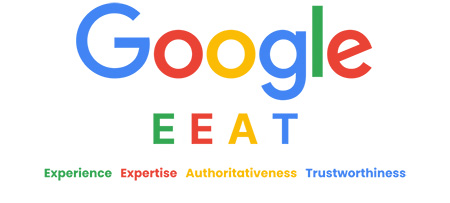
To thrive in the competitive legal landscape on search engines, law firms must showcase their Experience, Expertise, Authoritativeness, and Trustworthiness, collectively known as Google E-E-A-T. Google prioritizes ranking law firms that demonstrate these qualities, aiming to deliver reliable and credible results to its users. By including thorough and verifiable information on your website, such as professional photos, detailed contact information, lawyer qualifications, and achievements, you make a strong case for your law firm’s credibility and expertise. Beyond just the content on your website, establishing a positive reputation across the internet is crucial. Building quality backlinks from reputable sites within the legal industry or related fields is one of the most effective strategies to enhance your firm’s E-E-A-T profile. This strengthens your SEO efforts and reinforces your firm’s standing as a leading authority in your area of practice.
Find and Fix Technical SEO Issues
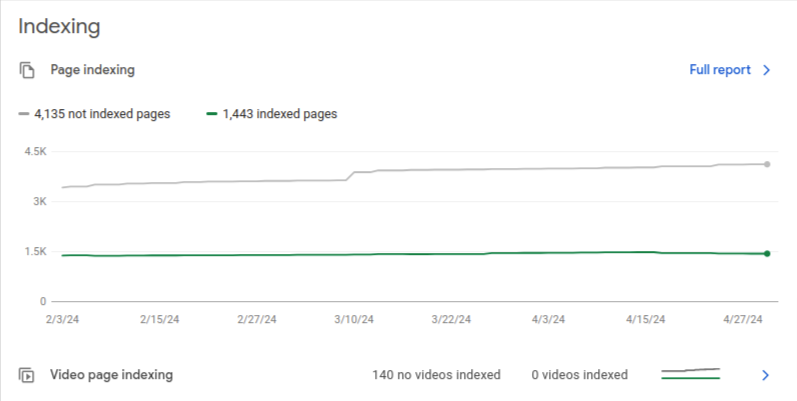
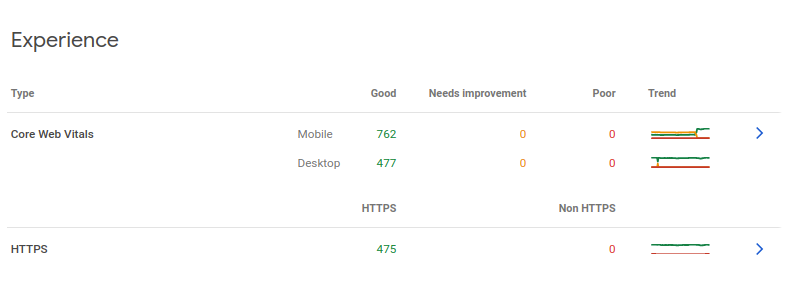
Technical SEO issues, when left unchecked, can significantly detract from your website’s rankings and overall user experience. A critical step in addressing these concerns involves utilizing tools like Google Search Console. This free tool is essential for law firms looking to ensure Google correctly indexes their website. It allows you to submit your site for indexing, identify and fix crawl errors, and monitor your site’s performance in search results. By leveraging Google Search Console, you can also gain valuable insights into how your SEO efforts translate into tangible outcomes, as we will explore in further detail in the subsequent section.
Keyword Research and Optimization
Conducting thorough keyword research is foundational to successful SEO for law firms. It involves identifying your potential clients’ terms and phrases when searching for legal services on Google. This step is critical because it uncovers new opportunities for ranking and allows for the strategic optimization of your website’s content. Focus on discovering long-tail keywords, semantic terms related to your practice areas, and conversational queries that prospects might use in voice searches. To gather insights, utilize advanced tools such as KeywordTool.io, AnswerThePublic, and Moz’s Keyword Explorer. Aim to target specific legal search terms and long-tail keywords that drive relevant traffic and conversions, for example, “slip and fall injury attorney in [Location]” or “top workplace accident lawyers.”
When evaluating keywords, pay attention to several key metrics to guide your selection:
- Intent: Understand the searcher’s intent, which could be informational, navigational, transactional, or investigational. This insight helps you tailor your content to effectively meet user needs.
- Volume: Look at the search volume to estimate the average monthly searches for each keyword, prioritizing those with a higher potential to attract visitors.
- KD %: Assess the keyword difficulty score, indicating how challenging it would be to rank well for a particular term in search engine results pages (SERPs).
- SF: Note SERP features (like featured snippets, local packs, etc.) for each keyword, as these can influence how your content should be optimized.

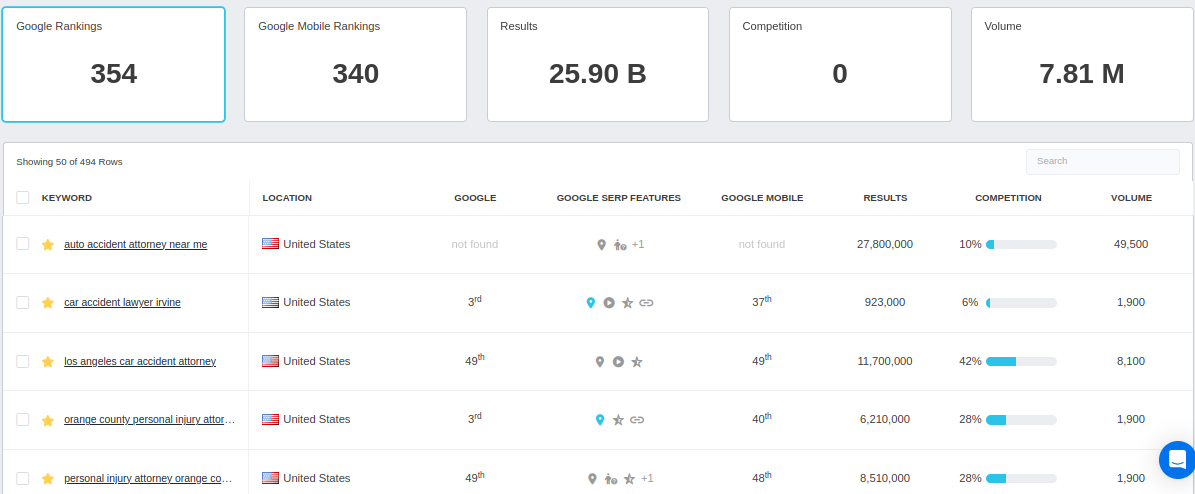
Leveraging these metrics and using various filters and sorting options will streamline finding the most promising keywords for your law firm’s SEO strategy.
Incorporate these keywords strategically throughout your website’s content, including:
- Page titles and meta descriptions
- Headings (H1, H2, etc.)
- Body Content
- Image alt text
- URL’s
Optimizing Content for Search Engines and Users
Create high-quality, informative content that addresses your target audience’s needs and questions. Ensure your content is well-structured, easy to read, and provides value to your visitors. Use header tags, bullet points, and short paragraphs to improve readability and user experience.
Improving Website Structure and Navigation
Make sure your website has a clear, logical structure and easy-to-use navigation. Use internal linking to help search engines understand your site’s hierarchy and to guide users to relevant content.
Building Quality Backlinks
Building quality backlinks is essential for enhancing your law firm’s visibility and authority online. Backlinks and links from other websites to yours drive traffic, increase brand awareness, and improve your Google rankings. To effectively start building backlinks, ensure your law firm is listed on reputable legal directories such as:
- Best Law Firms
- Avvo
- FindLaw
- Justia
Additionally, actively seek out unlinked brand mentions across the internet. If your firm is mentioned in a blog post or article without a link, don’t hesitate to ask the author or site owner to include a direct link to your site.

Enhance your backlink strategy by:
- Engaging with Journalists: Respond to requests for expert legal opinions or commentary, which can result in valuable backlinks from news sites and industry blogs.
- Broken Link Building: Identify and report broken links on relevant sites, suggesting your content as a valuable replacement.
- The Skyscraper Technique: Create superior versions of content that have already gained significant attention and links in your niche, such as comprehensive legal guides, then reach out to influencers and websites that have linked to the original content to link to your enhanced version instead.
These strategies not only improve your site’s SEO but also establish your firm as an authoritative source of legal information and advice.
Google My Business Optimization
Claim and optimize your Google My Business (GMB) listing in Google’s local search results and maps. Include accurate information about your law firm, such as:
- Business name, address, and phone number (NAP)
- Website URL
- Hours of operation
- Practice areas and services
- Photos and videos
Rank Higher in Google Local Pack
Maintain Your Google Business Profile. If your legal practice caters to local clients, it should have a well-maintained Google Business Profile (GBP). It can help you rank highly in the local pack (the map section that appears when people explicitly or implicitly search for products or services in their area).
- Keep your profile updated.
- Add posts/news every week
- Add services in GMB
- Ask your clients to leave reviews on your GMB.
Local Citation Building
Build local citations by listing your law firm’s NAP on relevant online directories, such as legal directories, local business listings, and review sites. Consistent and accurate citations help improve your local search visibility and credibility.
Encouraging Client Reviews
Client reviews are a powerful way to build trust and credibility with potential clients. Encourage satisfied clients to leave reviews on your Google My Business listing, as well as other relevant review sites like Avvo and Yelp.
Voice Search Optimization and AI Integration
In the era of smartphones and smart speakers, optimizing your law firm’s website for voice search has become essential. People increasingly use natural language and conversational queries when they search via voice assistants like Siri, Google Assistant, and Alexa. To capitalize on this trend, incorporate long-tail keywords that mirror how potential clients speak or ask questions about legal issues. This approach can significantly enhance your online visibility and attract more traffic to your site.
Furthermore, integrating AI technologies, especially chatbots and virtual assistants, into your law firm’s website can revolutionize client interactions. These AI-powered tools offer personalized assistance 24/7, responding to client inquiries, scheduling consultations, and even providing basic legal information. This improves the user experience and allows your firm to capture valuable data on client needs and preferences, enabling you to refine your services and marketing strategies accordingly.
Monitoring Your SEO Results
It’s crucial to consistently monitor your law firm’s SEO performance to gauge the efficacy of your SEO efforts and pinpoint areas for improvement. Tools like Position Tracking, Google Search Console, and Google Analytics 4 can comprehensively overview your website’s search engine visibility and user engagement.
Google Search Console offers insights into your site’s performance in Google search results, presenting data on impressions, clicks, click-through rate (CTR), and your site’s average position for various queries. After setting up, you can navigate to the “Performance” and “Search results” sections to access valuable metrics highlighting how users discover your website.

Google Analytics 4 (GA4), a robust analytics platform, sheds light on visitor demographics and behaviour on your site. The “Traffic acquisition” report within GA4 allows you to compare key metrics across different channels, including organic search. These metrics encompass the number of users (unique visitors), sessions (visits), engaged sessions (visits with significant interaction), average engagement time per session, engaged sessions per user, and events per session, offering a deep-dive into the effectiveness of your online presence and user engagement strategies.

Conclusion
A well-planned SEO strategy is essential for boosting your law firm’s online presence in a competitive environment. It can help increase your visibility, attract more qualified leads, and expand your business. It would help if you focused on optimizing your website’s on-page elements, implementing local SEO techniques, and creating valuable content that caters to your target audience. This approach can establish your firm as a leading authority in your practice areas, ensuring sustainable success in the long run. If you’re interested in law firm SEO services, click “Schedule call” or fill out the contact form to get started.
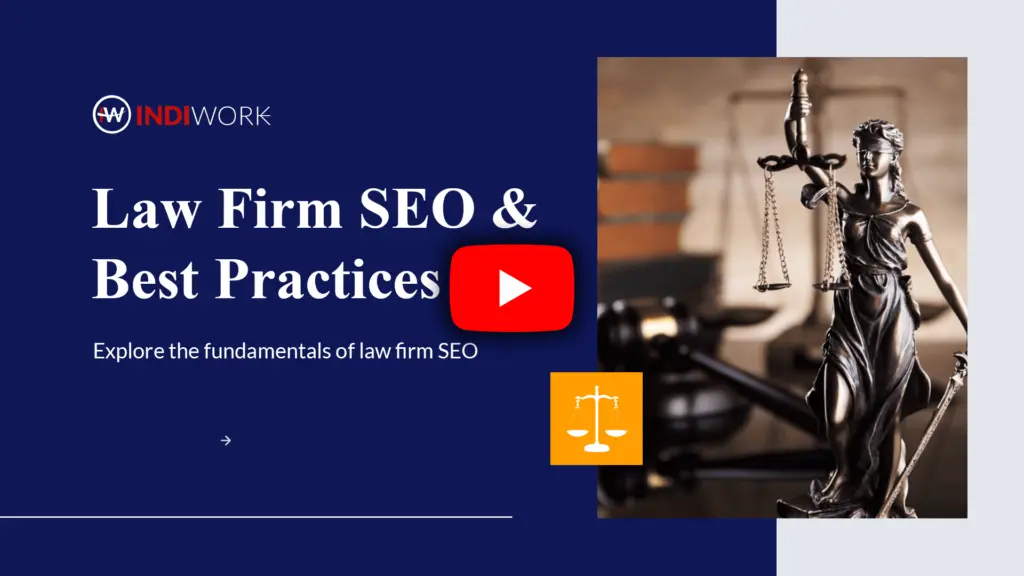
In today’s digital landscape, a law firm must have a robust online presence to attract potential clients and establish authority in the legal industry. Search Engine Optimization (SEO) is a powerful tool for achieving this. It can help your law firm rank higher in search results, drive organic traffic to your website, and generate more leads and cases. In this comprehensive guide, we will explore the fundamentals of law firm SEO and share best practices to help you optimize your online presence.
What is Law Firm SEO?
Search Engine Optimization (SEO) for law firms means optimizing their website to rank higher in search engine results pages (SERPs) for relevant keywords and phrases. By improving their website’s visibility and ranking, law firms can attract more qualified traffic and increase their chances of converting visitors into clients.
Why is SEO Important for Law Firms?
In the legal industry, competition is fierce, and potential clients often turn to search engines like Google to find legal services. By implementing effective SEO strategies, your law firm can:
- Increase visibility and brand awareness
- Drive targeted, organic traffic to your website
- Establish your law firm as an authority in your practice areas
- Generate more leads and cases
- Outrank competitors in search results
Demonstrating Experience, Expertise, Authority, & Trustworthiness (E-E-A-T)

To thrive in the competitive legal landscape on search engines, law firms must showcase their Experience, Expertise, Authoritativeness, and Trustworthiness, collectively known as Google E-E-A-T. Google prioritizes ranking law firms that demonstrate these qualities, aiming to deliver reliable and credible results to its users. By including thorough and verifiable information on your website, such as professional photos, detailed contact information, lawyer qualifications, and achievements, you make a strong case for your law firm’s credibility and expertise. Beyond just the content on your website, establishing a positive reputation across the internet is crucial. Building quality backlinks from reputable sites within the legal industry or related fields is one of the most effective strategies to enhance your firm’s E-E-A-T profile. This strengthens your SEO efforts and reinforces your firm’s standing as a leading authority in your area of practice.
Find and Fix Technical SEO Issues


Technical SEO issues, when left unchecked, can significantly detract from your website’s rankings and overall user experience. A critical step in addressing these concerns involves utilizing tools like Google Search Console. This free tool is essential for law firms looking to ensure Google correctly indexes their website. It allows you to submit your site for indexing, identify and fix crawl errors, and monitor your site’s performance in search results. By leveraging Google Search Console, you can also gain valuable insights into how your SEO efforts translate into tangible outcomes, as we will explore in further detail in the subsequent section.
Keyword Research and Optimization
Conducting thorough keyword research is foundational to successful SEO for law firms. It involves identifying your potential clients’ terms and phrases when searching for legal services on Google. This step is critical because it uncovers new opportunities for ranking and allows for the strategic optimization of your website’s content. Focus on discovering long-tail keywords, semantic terms related to your practice areas, and conversational queries that prospects might use in voice searches. To gather insights, utilize advanced tools such as KeywordTool.io, AnswerThePublic, and Moz’s Keyword Explorer. Aim to target specific legal search terms and long-tail keywords that drive relevant traffic and conversions, for example, “slip and fall injury attorney in [Location]” or “top workplace accident lawyers.”
When evaluating keywords, pay attention to several key metrics to guide your selection:
- Intent: Understand the searcher’s intent, which could be informational, navigational, transactional, or investigational. This insight helps you tailor your content to effectively meet user needs.
- Volume: Look at the search volume to estimate the average monthly searches for each keyword, prioritizing those with a higher potential to attract visitors.
- KD %: Assess the keyword difficulty score, indicating how challenging it would be to rank well for a particular term in search engine results pages (SERPs).
- SF: Note SERP features (like featured snippets, local packs, etc.) for each keyword, as these can influence how your content should be optimized.


Leveraging these metrics and using various filters and sorting options will streamline finding the most promising keywords for your law firm’s SEO strategy.
Incorporate these keywords strategically throughout your website’s content, including:
- Page titles and meta descriptions
- Headings (H1, H2, etc.)
- Body Content
- Image alt text
- URL’s
Optimizing Content for Search Engines and Users
Create high-quality, informative content that addresses your target audience’s needs and questions. Ensure your content is well-structured, easy to read, and provides value to your visitors. Use header tags, bullet points, and short paragraphs to improve readability and user experience.
Improving Website Structure and Navigation
Make sure your website has a clear, logical structure and easy-to-use navigation. Use internal linking to help search engines understand your site’s hierarchy and to guide users to relevant content.
Building Quality Backlinks
Building quality backlinks is essential for enhancing your law firm’s visibility and authority online. Backlinks and links from other websites to yours drive traffic, increase brand awareness, and improve your Google rankings. To effectively start building backlinks, ensure your law firm is listed on reputable legal directories such as:
- Best Law Firms
- Avvo
- FindLaw
- Justia
Additionally, actively seek out unlinked brand mentions across the internet. If your firm is mentioned in a blog post or article without a link, don’t hesitate to ask the author or site owner to include a direct link to your site.

Enhance your backlink strategy by:
- Engaging with Journalists: Respond to requests for expert legal opinions or commentary, which can result in valuable backlinks from news sites and industry blogs.
- Broken Link Building: Identify and report broken links on relevant sites, suggesting your content as a valuable replacement.
- The Skyscraper Technique: Create superior versions of content that have already gained significant attention and links in your niche, such as comprehensive legal guides, then reach out to influencers and websites that have linked to the original content to link to your enhanced version instead.
These strategies not only improve your site’s SEO but also establish your firm as an authoritative source of legal information and advice.
Google My Business Optimization
Claim and optimize your Google My Business (GMB) listing in Google’s local search results and maps. Include accurate information about your law firm, such as:
- Business name, address, and phone number (NAP)
- Website URL
- Hours of operation
- Practice areas and services
- Photos and videos
Rank Higher in Google Local Pack
Maintain Your Google Business Profile. If your legal practice caters to local clients, it should have a well-maintained Google Business Profile (GBP). It can help you rank highly in the local pack (the map section that appears when people explicitly or implicitly search for products or services in their area).
- Keep your profile updated.
- Add posts/news every week
- Add services in GMB
- Ask your clients to leave reviews on your GMB.
Local Citation Building
Build local citations by listing your law firm’s NAP on relevant online directories, such as legal directories, local business listings, and review sites. Consistent and accurate citations help improve your local search visibility and credibility.
Encouraging Client Reviews
Client reviews are a powerful way to build trust and credibility with potential clients. Encourage satisfied clients to leave reviews on your Google My Business listing, as well as other relevant review sites like Avvo and Yelp.
Voice Search Optimization and AI Integration
In the era of smartphones and smart speakers, optimizing your law firm’s website for voice search has become essential. People increasingly use natural language and conversational queries when they search via voice assistants like Siri, Google Assistant, and Alexa. To capitalize on this trend, incorporate long-tail keywords that mirror how potential clients speak or ask questions about legal issues. This approach can significantly enhance your online visibility and attract more traffic to your site.
Furthermore, integrating AI technologies, especially chatbots and virtual assistants, into your law firm’s website can revolutionize client interactions. These AI-powered tools offer personalized assistance 24/7, responding to client inquiries, scheduling consultations, and even providing basic legal information. This improves the user experience and allows your firm to capture valuable data on client needs and preferences, enabling you to refine your services and marketing strategies accordingly.
Monitoring Your SEO Results
It’s crucial to consistently monitor your law firm’s SEO performance to gauge the efficacy of your SEO efforts and pinpoint areas for improvement. Tools like Position Tracking, Google Search Console, and Google Analytics 4 can comprehensively overview your website’s search engine visibility and user engagement.
Google Search Console offers insights into your site’s performance in Google search results, presenting data on impressions, clicks, click-through rate (CTR), and your site’s average position for various queries. After setting up, you can navigate to the “Performance” and “Search results” sections to access valuable metrics highlighting how users discover your website.

Google Analytics 4 (GA4), a robust analytics platform, sheds light on visitor demographics and behaviour on your site. The “Traffic acquisition” report within GA4 allows you to compare key metrics across different channels, including organic search. These metrics encompass the number of users (unique visitors), sessions (visits), engaged sessions (visits with significant interaction), average engagement time per session, engaged sessions per user, and events per session, offering a deep-dive into the effectiveness of your online presence and user engagement strategies.

Conclusion
A well-planned SEO strategy is essential for boosting your law firm’s online presence in a competitive environment. It can help increase your visibility, attract more qualified leads, and expand your business. It would help if you focused on optimizing your website’s on-page elements, implementing local SEO techniques, and creating valuable content that caters to your target audience. This approach can establish your firm as a leading authority in your practice areas, ensuring sustainable success in the long run. If you’re interested in law firm SEO services, click “Schedule call” or fill out the contact form to get started.
Please fill in the form
We'd love to hear from you.
Related Posts
Most business leaders today recognize that Artificial Intelligence (AI) has the potential to enhance operational efficiency, enhance customer satisfaction, and facilitate more intelligent decision-making. However, when it comes to using AI effectively, many companies feel overwhelmed by the options and the hype.
Staying up-to-date with the latest social media trends is vital for individuals and businesses in today’s ever-evolving digital world. As we complete our research and discover the current trends of 2023, a few significant social media trends dominate the social world’s landscape.
Google E-A-T stands for Expertise, Authoritativeness, and Trustworthiness. It is a framework used by Google’s algorithm to evaluate the quality of Content on a website. E-A-T is particularly important for websites that offer health, finance, or legal advice, as Content in these niches can significantly impact people’s lives.
Related Posts
Most business leaders today recognize that Artificial Intelligence (AI) has the potential to enhance operational efficiency, enhance customer satisfaction, and facilitate more intelligent decision-making. However, when it comes to using AI effectively, many companies feel overwhelmed by the options and the hype.
Staying up-to-date with the latest social media trends is vital for individuals and businesses in today’s ever-evolving digital world. As we complete our research and discover the current trends of 2023, a few significant social media trends dominate the social world’s landscape.
Google E-A-T stands for Expertise, Authoritativeness, and Trustworthiness. It is a framework used by Google’s algorithm to evaluate the quality of Content on a website. E-A-T is particularly important for websites that offer health, finance, or legal advice, as Content in these niches can significantly impact people’s lives.

